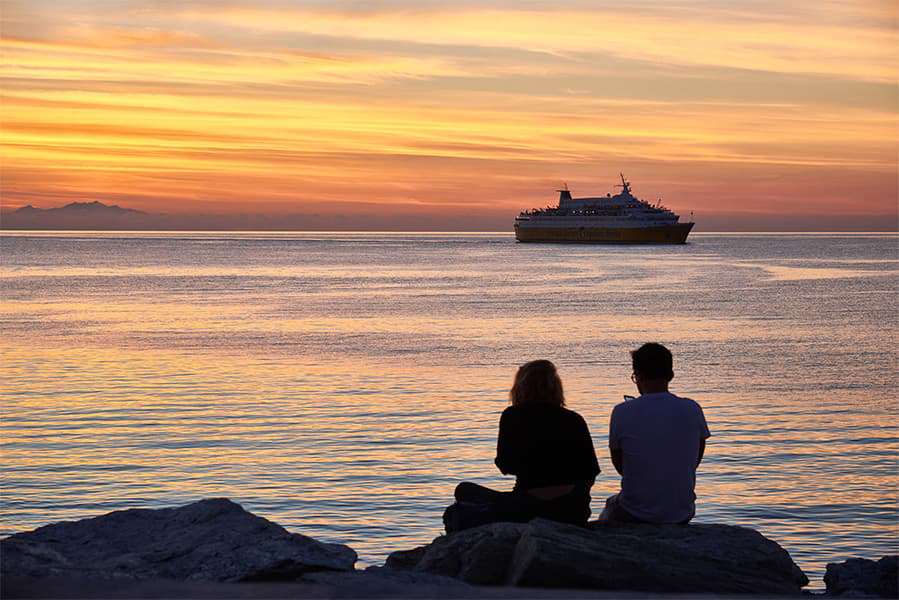Klaipeda - Rostock
Ferries to Germany
Klaipeda - Rostock
Ferries to Germany

The Klaipeda Rostock ferry route is currently not sailing. Klaipeda Rostock sailing durations and frequency may vary from season to season. View our Deal Finder for alternative routes and compare prices, times and schedules.
More routes than anyone else.

Compare fares, times & routes in one place.
Change plans easily with flexi tickets.

Book e-tickets & manage trips in-app.
Live ship tracking & real-time updates.

Top-rated customer support when you need it.
Located at the mouth of the River Dane in Lithuania is the city of Klaipeda. It lies at the point where the river flows into the Baltic Sea and is the third largest city in Lithuania. Having at various points in its past been ruled by the Duchy of Prussia, the German Empire and the Soviet Socialist Republic, the city has a rich and varied past. This heritage makes the city an interesting place to visit with most attractions located in the city centre. Some of the city's older buildings have picturesque half-timbered construction, similar to that found in Germany, France, England, Denmark and southern Sweden.
The city's mainly ice-free port has an important role to play in Lithuania's transport network. It provides a connection to the country's land, sea and railway routes from east to west. The port caters for both passenger traffic and cargo, and has a number of stevedoring companies, ship repair and ship building yards. The port lies to the south west of the city and offers passenger ferry services to Kiel and Karlshamn.
The German city of Rostock is the largest city in the north German state of Mecklenburg-Vorpommern and lies around 12 km from the Baltic Sea coast, on the banks of the Warnow River. Founded in 1419, the city's university, the University of Rostock, is one of the oldest in Germany that has been in continuous operation and is also one of the oldest universities in the world. The university's botanical garden, the Botanischer Garten Universitat Rostock, is open to the public and is a lovely place to visit. Drawing on the city's maritime connections, Rostock is also home to the annual Hanse Sail Festival which is where you will be able to see many large sailing ships and museum vessels taken out to sea. The festival is very popular and attracts around 1.5 million visitors each year. Also hosted by the city is the annual jazz festival called Ostee-Jazz (Baltic Sea Jazz) and is held every June.
The city's port is one of the most important ports in Europe and is Germany's largest. Ferry services operating from the port depart to Gedser in Denmark (2 hours), Trelleborg in Sweden (5 hours and 45 minutes, with a super fast ferry travelling to Hanko in Finland with a crossing time of 22 hours.